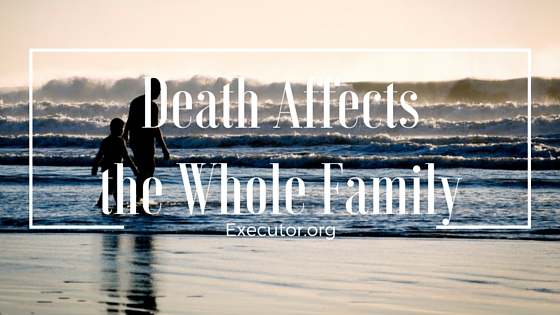
Don’t Let This Happen To Your Family
Family Squabbles After a Death – An All-Too-Common Story
For the Conrad* family, the mantra was always “family first.”
Mom, Dad and their five children — four girls and a boy — spent every holiday together, even long after the children had grown into adults with their own families. Birthdays were no different. It wasn’t unusual for the whole family to get together twice a month to celebrate a holiday or birthday. And with the aforementioned mantra, you better have a really good excuse to miss.
As time moved on, the family suffered loss. Dad passed first and when it came time to settle his estate, everything went to Mom without issue. The tight-knit family continued as always, minus their beloved patriarch.
A few years later, Mom passed. After grieving as a family once again, suddenly the once unbreakable bond between siblings started to fracture. Like too many other families dealing with loss, the process of dividing up their mother’s assets, selling off her home, and coping with her death became too much to handle.
The eldest sister was thrust, unprepared, into the role of executor. And missteps from not understanding the very complex executor process led to issues that irritated and upset her siblings. There were arguments and accusations. And after a year, battle lines had been drawn, the estate remained unsettled, and a judge ordered them all to come to probate court. In court, the siblings had to explain what had gone wrong — why they couldn’t resolve matters among themselves. One of the sisters was on the stand for more than three hours, answering questions about her relationship with her parents, her siblings, and why they had failed to settle the estate yet.
It would be nice to think that this story is an aberration. However, it’s all too common across the country when a family member passes and either has no estate plan in place or there’s discord among beneficiaries about the estate plan. Complicating matters further is that too many of us are thrown into the role of executor having little to no knowledge of the arduous process.
So what do you do if you just lost a loved one and have learned that they, in their will, named you as the executor of their estate?
Here’s a few tips to get you started:
-
Understand that being an executor is a lot of work.
An executor is a representative of the estate of a deceased person. As such, you will be responsible for everything from obtaining a copy of the will and filing it with the probate court to communicating with beneficiaries, creditors and other professionals. There is no set timeline for how long an executor’s duties will last, but you should expect it to take at least a year or longer.
-
Remember that communication is key.
It is important to communicate with beneficiaries often. They want to know that you are working on the estate. A regular update can put them at ease about the progress or inform them of any delays. Remember that everyone involved in the process, especially people named in the will, want to hear from you on a regular basis. Even if it’s just a quick update, it is best to let everyone know what’s going on. Be sure to make notes of every communication you have regarding the estate.
-
Build the right team.
An executor will see some complicated documents such as wills and trusts early in the process. Later, assets might need to be appraised and sold. It can seem overwhelming, so don’t be afraid to ask for help. In fact, in most cases you really should not undertake the process alone unless you are an expert. Executor duties often require working with an attorney, an accountant, a funeral director, a real estate agent, an appraiser, an auctioneer, etc. It may even be a part of the deceased’s will that professionals help.
Fortunately, Executor.org can help too. Our online tool guides you through a personalized, step-by-step plan that will save you time, money and minimize stress. We’ll create a custom plan to suit your needs rather than take a one-size-fits-all approach. The process of settling an estate can have more than 100 steps, including planning a funeral, finding an attorney, figuring out what to do with a house full of belongings, and distributing assets. We’ll cover them all to help you navigate the process from start to finish and get the support you need. We’ll even give you proven tips on how to deal successfully with family relationships after the death of a parent so you can avoid the situation above.
In addition to step-by-step guidance, we’ll help you track your progress and you can utilize our spreadsheets to keep a record of important financial details. And since you can save your work, you can start today and just do a little at a time, as you are able to do so. Think of it as an executor checklist — but a whole lot more helpful. Click here to get started now.
* Family name changed for privacy reasons.
Use our tool to simplify the process and minimize your stress.